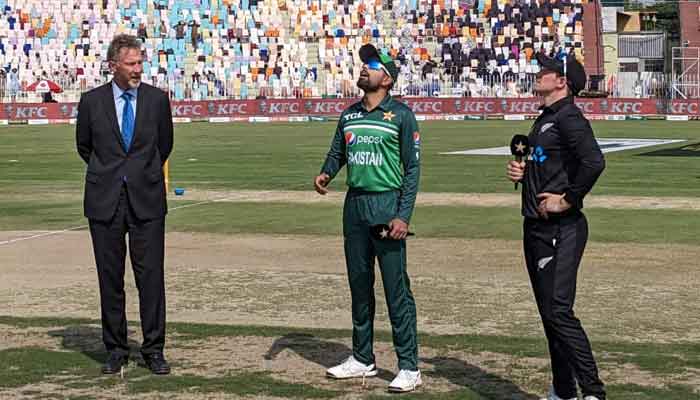Saudi Arabia will host the men’s soccer World Cup in 2034, while the 2030 edition will take place in Spain, Portugal, and Morocco, with additional matches in three South American nations, as announced by FIFA on Wednesday (Dec 11).
The announcement was made by FIFA President Gianni Infantino after a virtual special Congress. The World Cups of 2030 and 2034 each received a solitary bid and were both ratified by acclamation.
“We are expanding football to additional countries, and the increase in teams has not compromised the quality.” Infantino stated that it indeed augmented the opportunity for the 2030 World Cup.
“What more fitting manner to commemorate the centenary in 2030 than to host the World Cup across six nations, spanning three continents, featuring 48 teams and 104 remarkable matches?” The world will pause to commemorate the centenary of the World Cup.
“I extend my congratulations to all the bidders for their impressive submissions, but I wish to formally express my profound gratitude to the six confederation presidents and their teams,” he added.
The joint plan from Morocco, Spain, and Portugal will host the 2030 World Cup over three continents and six nations, with Uruguay, Argentina, and Paraguay organising commemorative matches to celebrate the tournament’s centenary.
Uruguay hosted the inaugural World Cup in 1930, and both Argentina and Spain have also organised the tournament. Portugal, Paraguay, and Morocco will serve as inaugural hosts.
In four years, Saudi Arabia will become the second Middle Eastern nation to hold the quadrennial event, 12 years after neighbouring Qatar held the 2022 edition.
In 2023, FIFA announced that the 2034 World Cup would take place in the Asia or Oceania area, with the Asian Football Confederation endorsing the Saudi candidacy.
Australia and Indonesia have engaged in discussions on a collaborative candidacy but subsequently withdrew.
FIFA declared that both bids would be unopposed in 2023, eliminating any uncertainty.
On Tuesday, the Norwegian Football Federation (NFF) announced its opposition to the acclamation of hosting rights and condemned FIFA’s bidding process as “flawed and inconsistent.”
CRITIQUE
Both proposals have faced criticism.
The choice to stage the 2030 World Cup across three continents has been criticised by climate activists due to the heightened emissions resulting from the additional travel necessitated.
FIFA has stated it will implement measures to “reduce the environmental impact.”
The 2034 candidacy by Saudi Arabia has faced criticism due to the nation’s human rights record and arid climate, similar to the scrutiny of the Qatar World Cup.
The climatic conditions in Saudi Arabia will probably necessitate that FIFA schedule the event during the winter months of the Northern Hemisphere, similar to the arrangement made in Qatar.
The World Cup in Saudi Arabia will ignite discussions on the Kingdom’s human rights record and provoke allegations of “sportswashing.”.
Amnesty International and the Sport & Rights Alliance (SRA) have implored FIFA to suspend the selection of Saudi Arabia as hosts unless significant modifications are declared prior to the vote.
The Kingdom has made substantial investments in sports in recent years; nevertheless, detractors, notably women’s rights organisations and LGBTQ advocates, assert that it is utilising its Public Investment Fund to obscure its human rights record.
Subsequent to Saudi Arabia being designated as the host of the 2034 World Cup, 21 entities, including Amnesty International, Saudi diaspora human rights organisations, migrant workers’ groups from Nepal and Kenya, and international trade unions, issued a collective statement denouncing the decision.
Steve Cockburn, Amnesty International’s Head of Labour Rights and Sport, stated on Wednesday that FIFA’s imprudent decision to grant the 2034 World Cup to Saudi Arabia, without guaranteeing sufficient human rights safeguards, will jeopardise several lives.
The nation refutes allegations of human rights violations and asserts that it safeguards its national security via its legislation.
Saudi Arabia, having never hosted a tournament of this scale, must construct eight stadiums for the event.
“We anticipate hosting an extraordinary and unparalleled edition of the FIFA World Cup by leveraging our strengths and capabilities to delight football enthusiasts globally,” stated Prince Mohammed bin Salman.
Abdulaziz bin Turki Al-Faisal, the Minister of Sports, declared it a momentous occasion for Saudi Arabia.
“The Kingdom is undergoing a significant transformation under Vision 2030, and today marks another substantial advancement that acknowledges our progress while anticipating an even more promising future,” he stated.

